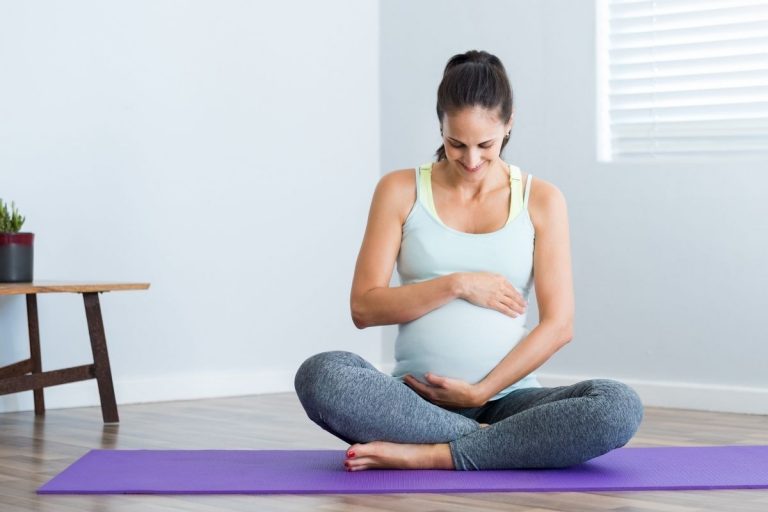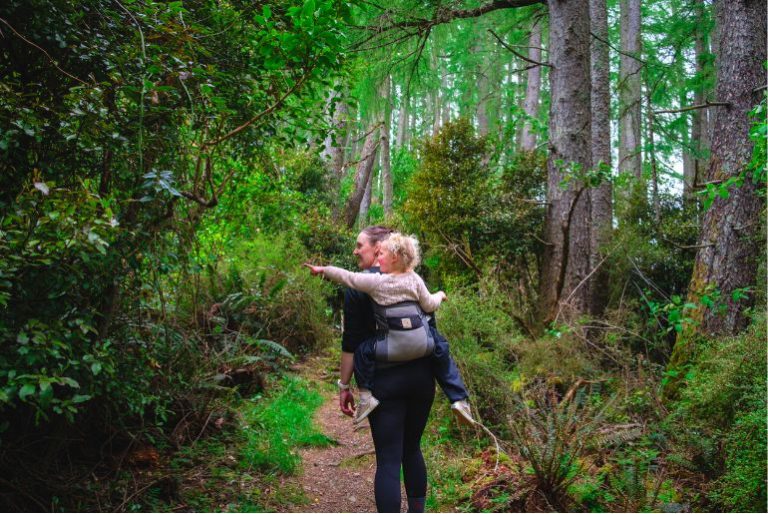In association with professional midwife experts at birthEd, find out everything you need to know about pregnancy at 18 weeks, including how your baby is growing, changes to expect in your body and pregnancy health, nutrition and wellness advice.
| Week 17 |
Week 19 |
18 Weeks Pregnant – Your baby, your body & you
Your Baby
Your baby is about 14 cm long and weighing around 185g. This week your baby is learning some new skills, including yawning and hiccupping. You may start to feel those hiccups yourself! It is the baby’s diaphragm contracting that are hiccups and these have been observed in an ultrasound scan of a 9 week old fetus. Researchers have some theories as to why babies have hiccups from building neural pathways in the brain to helping the lungs mature for breathing, but at this time the findings are of interest and no direct conclusions have been made.
You may start to feel more obvious movement from your little one by this point. Flutters will have progressed to tiny kicks and punches as your baby is mastering the use of their muscles. These first movements are called “quickening” and are felt between the 16 and 25 weeks of your pregnancy. If this is your first pregnancy then you may not feel your little one move until closer to your 25th week.
At this stage, the baby’s nerves and bones in their ears have developed so they are hearing a lot more. Your voice will soon be their favourite sound, take time to talk and sing to your growing bump throughout your pregnancy.
Your Body
There are some big changes going on in your cardiovascular system, your blood pressure will be lower than normal and dizziness is common.
Take your time when standing up to avoid those dizzy spells and sit on the edge of the bed first after getting up from lying. During the second trimester your body releases a hormone called relaxin. As the name suggests, this hormone relaxes the muscles, ligaments, and joints. While this can contribute to pain and discomfort in your pelvis and hips, it will be beneficial when the time comes to push this wee one out!
Relaxin will help the joints and ligaments in your pelvis stretch during birth and this ‘widening process’ begins around 10-12 weeks pregnant. The change in hormones and blood pressure can also cause headaches at this stage. Ensure you stay hydrated, get plenty of sleep, and eat well. Seek advice from your midwife or medical professional before taking any painkillers.
You
With possible new aches and pains coming to surface this month, find new ways to relax and rejuvenate. Pregnancy yoga, hydrotherapy, aqua jogging, are all low impact options that can help ease your aches whilst also keeping up with exercise.
Although you do need to keep your body moving, it is important for you to take time to relax. Warm showers and baths can help ease pain, but skip the spa pools and saunas, as the temperatures can get too hot.
Your Relationships
You may have already spoken to your place of work about your pregnancy. Now is the time to start locking in work arrangements. Take time to discuss with your employer what is expected of you, and what you expect of them.
In New Zealand, employees who are pregnant are entitled to up to 10 days of unpaid special leave. This allows them to take time off for pregnancy-related reasons such as attending medical appointments, antenatal classes, and preparing for childbirth.
This Week’s Preparation
Look out for the first flutters of movement
Consider progressing to lower impact physical exercise, such as pregnancy yoga or aqua jogging
Talk to your workplace about your pregnancy and lock in your work arrangements
Back to 52 Weeks of pregnancy.






![How to Make a Rice Heat Pad or Wheat Bag [2 Ways] How to Make a Wheat Bag-Sewing Version](https://www.kiwifamilies.co.nz/wp-content/uploads/2014/07/How-to-Make-a-Wheat-Bag-Sewing-Version-768x510.jpg)